What Is a Baby Elephant Called?
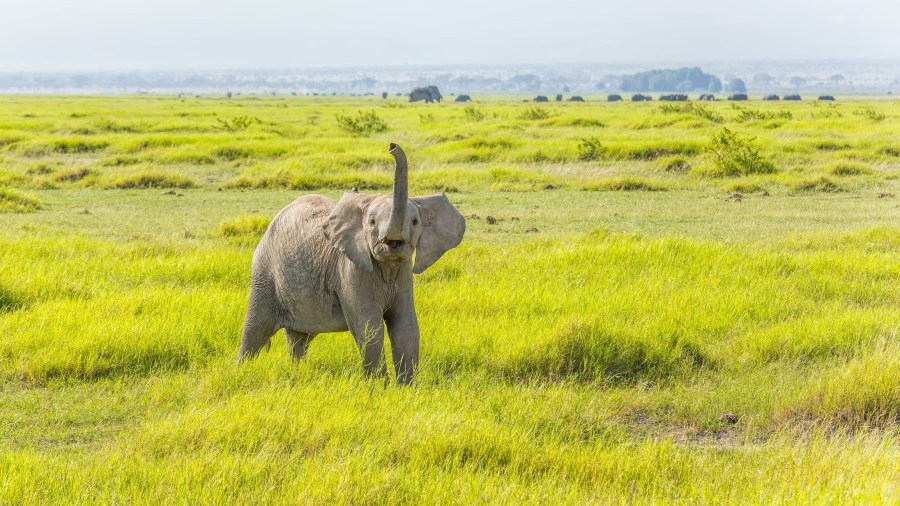
We’re all familiar with elephants, but how much do you really know about these fascinating creatures? Not only are elephants the world’s largest land animal, but they’re also incredibly intelligent creatures. Unfortunately, these incredible creatures are endangered, and it’s estimated that only 40,000-50,000 still exist in the wild.
While capable of living in a wide range of different ecosystems, most wild elephants live in the tropical and subtropical regions of Asia, and a selection of African countries. Join us as we explore a round-up of fun facts that will make you see elephants in a whole new light.
What Is a Baby Elephant Called?
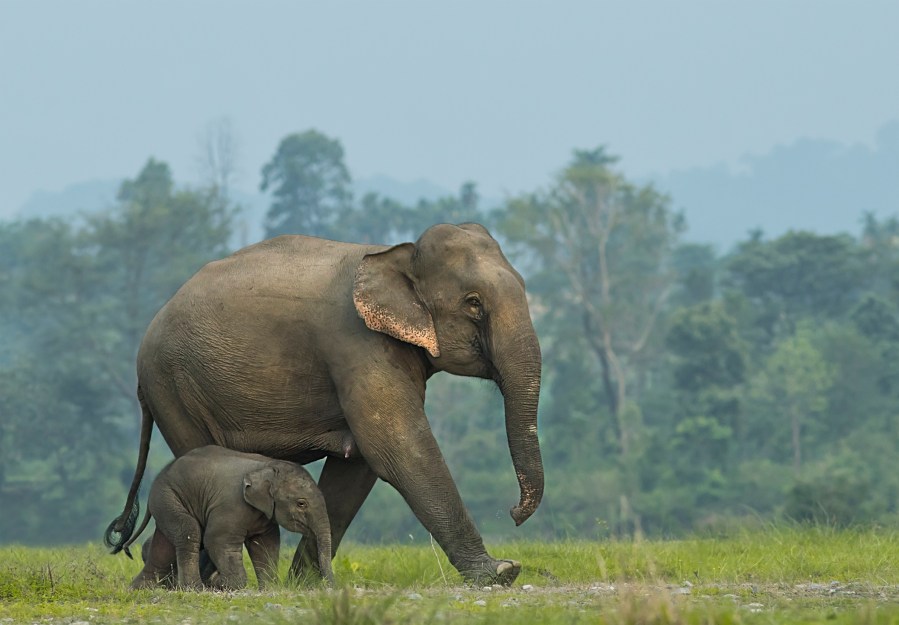
What do cattle and elephants have in common? Not much, except that their babies are both called calves. If you thought 9 months was a long time to carry a baby, then talk to the nearest elephant mom. Female elephants have the longest gestation period of any land animal on earth, with pregnancies that last 22 months. Their calves then feed on their milk for up to two years or sometimes even longer.
A newborn elephant calf can weigh up to 230 pounds, but even still, they find their footing incredibly quickly. The average elephant calf can stand up about an hour after being born, and can start walking within about two days. Nonetheless, calves are very dependent on their relatives for the first few years of their lives. Luckily, elephants are social creatures and have strong family bonds. If an elephant calf shows signs of distress, it’s common for several family members will go over to see if they can help.
How Many Species of Elephants Exist Today?
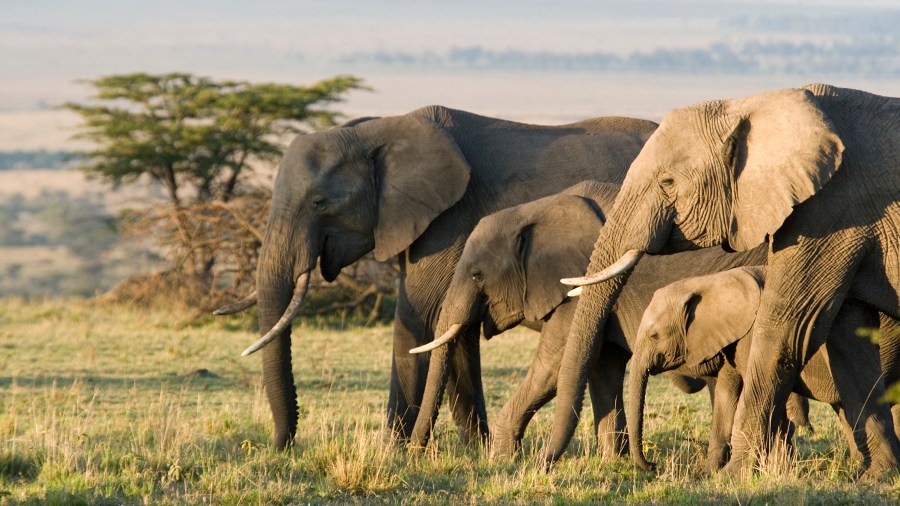
For years, it was widely accepted that there were only two species of elephants: African and Asian. But in the year 2000, genetic evidence revealed that African elephants actually consisted of two distinct species: African Bush Elephants and African Forest Elephants.
African Bush Elephants are the largest species of elephant, and also have the largest ears, which are sometimes said to resemble the shape of Africa. They tend to live in the African savanna, where they dine mostly on grass. African Forest Elephants are a bit smaller, with more oval-shaped ears and straight (rather than curved) trunks. They prefer to hang out in the rainforest, where they eat mostly fruit.
Asian Elephants are easy to tell apart because their heads are twin-domed, and they are smaller than African Bush Elephants. Their ears are also smaller and, some say, resemble the shape of India.
Elephants Really Don’t Forget
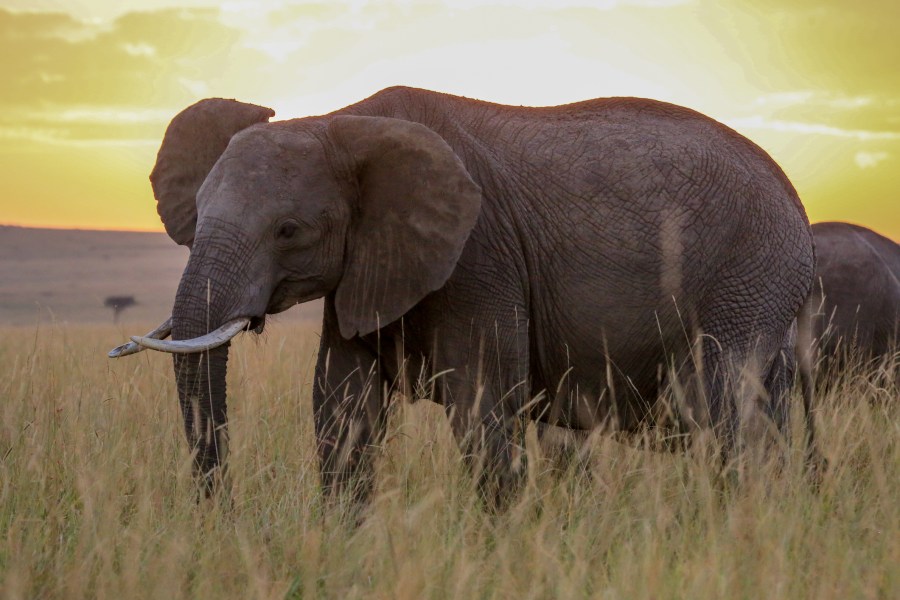
“An elephant never forgets” may be a common adage, but it’s actually based on scientific evidence. Much like people, elephants can recognize an old friend, even if they haven’t seen them for a decade.
Elephants have also shown a large capacity for emotion and empathy. When one of their herd dies, they go through a grieving process very similar to that of humans. Considering how large their brains are, this isn’t really surprising. One scientific study ran MRIs on a group of African elephants and discovered that the part of their brains that controlled emotion were even larger than the average human’s.
Elephant Trunks Do More Than You Think
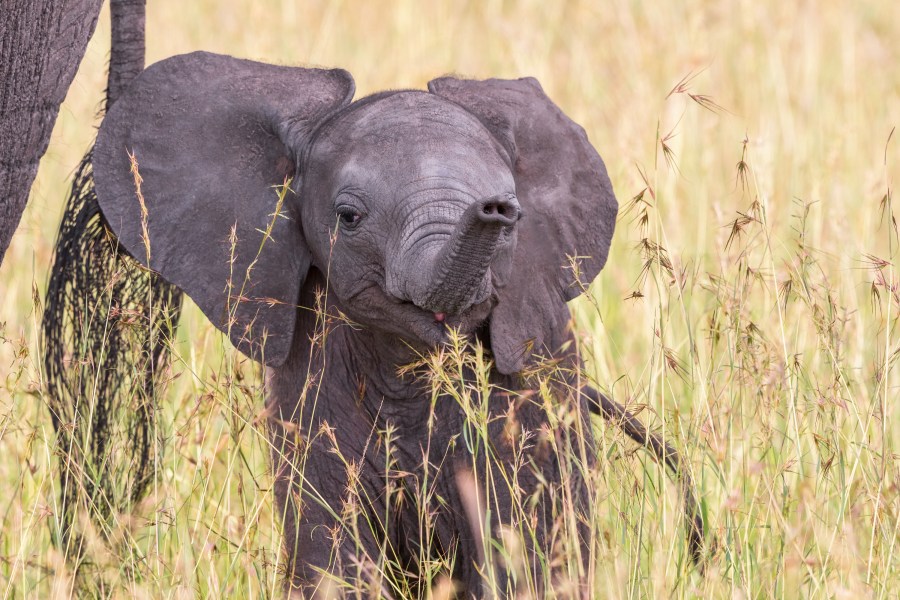
Scientists estimate that an elephant’s trunk alone contains around 100,000 muscles and tendons, making it capable of incredibly intricate movements. African elephants even have two finger-like extensions on the ends of their trunks that allow them to pick up objects, while Asian elephants only have one.
Elephants can use their trucks to reach branches that are up to 20 feet high, smell with more accuracy than a bloodhound, and push objects that weigh up to 700,000 pounds. Elephants can also use their trunks as snorkels when swimming, and to hold up to 2.2 gallons of water. Baby elephants even suck their trunks for comfort, much like human babies suck their thumbs.
Elephants Eat A Lot
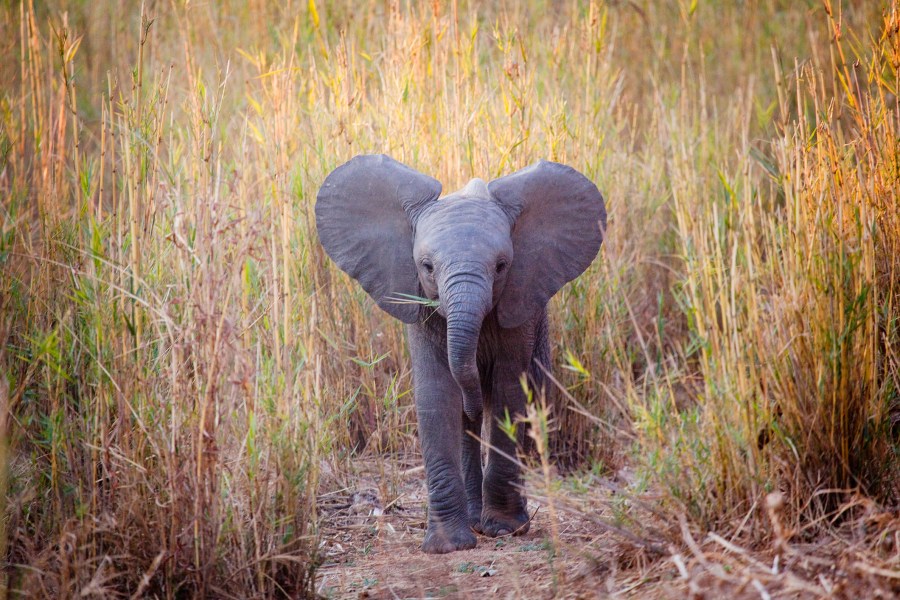
Elephants can weigh from 5,950 lbs on the smaller end of the scale, and upwards of 13,000 lbs on the higher end. Considering they have to carry all that weight around all day, it’s no surprise that they have a healthy appetite. According to the International Elephant Foundation, the average elephant can spend up to 16 hours a day eating, during which time they consume an average of 250 – 300 pounds of food. They also drink a great deal of water, usually around 25 – 50 gallons a day.
Unfortunately, their digestive tracks only work with about 50% accuracy, so they produce an incredible amount of manure. In fact, elephants can deficate 12 – 15 times in a single day, which adds up to over 40 tons of manure per elephant, daily.
They Use DIY Sunscreen
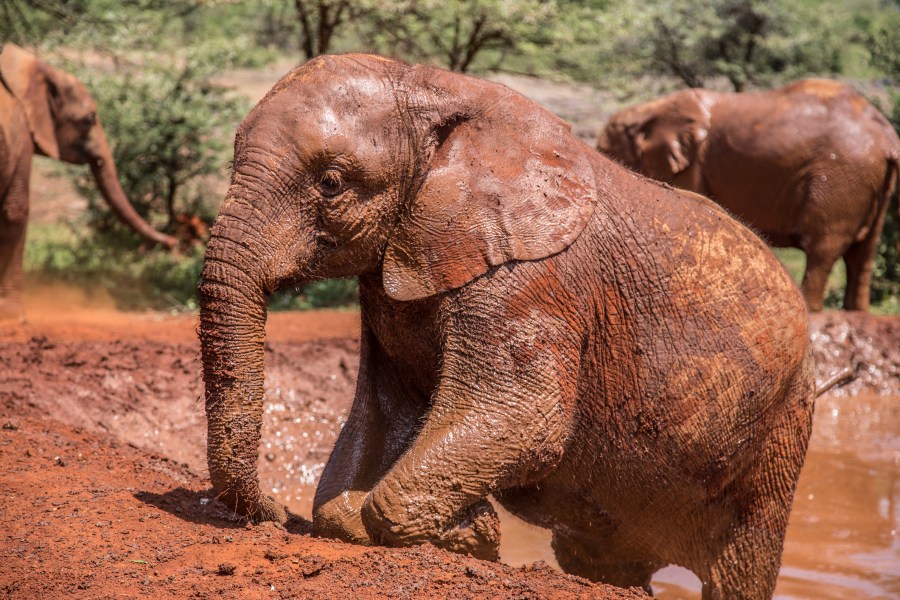
While elephants have thick skin, they don’t have the luxury of scales or feathers to protect them from the sun’s rays. As a result, their skin is highly susceptible to sunburn. Luckily, they have developed a natural skin care regimen to protect themselves.
They use their trunks to pick up dirt or sand and then toss it over their backs, as well as the backs of their calves. Not only does it help keep bugs away, but it also serves as a natural sunblock.
Elephants Can “Hear” With Their Feet
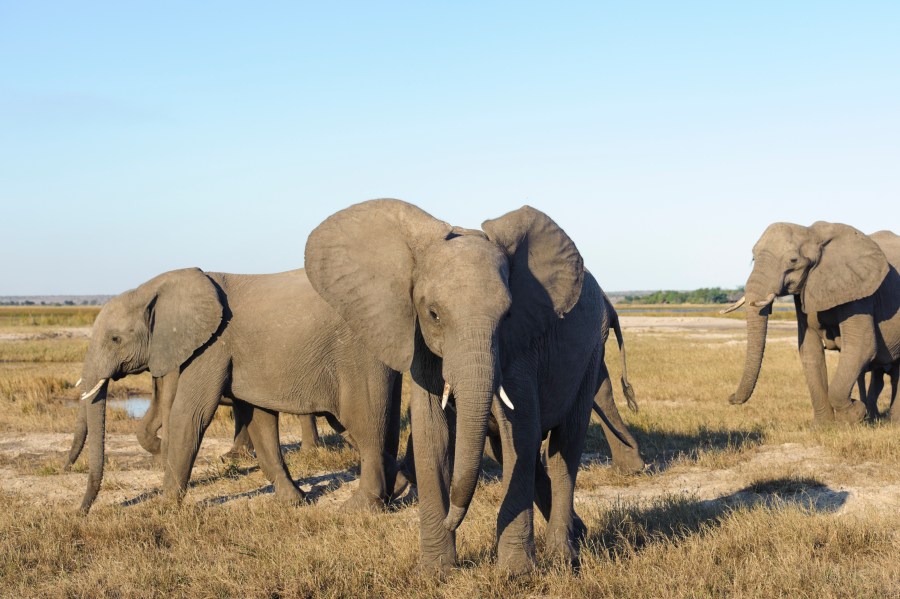
Elephants can communicate with each other in a variety of ways. While humans can hear many of their vocalizations, others are too low-frequency to be heard by the human ear. It turns out that they can even communicate through a series of foot stomps.
One study found that by stomping their feet, elephants can generate a series of vibrations in the ground that other elephants can pick up on miles away. Their feet contain incredibly sensitive nerve endings which allow them to sense infrasonic ground signals.





